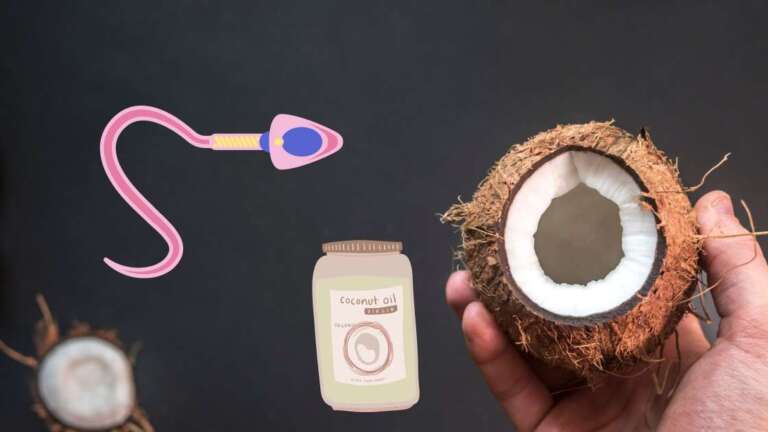Ever wondered how long the antibiotics you take stay in your system? If so, then you found the right article to answer your question.
Antibiotics are medications used to fight infections caused by bacteria. They are also known as antibacterial agents. They treat infections by killing or decreasing the growth of bacteria.
Penicillin was the first antibiotic widely available in the 1940s. Since then, researchers have developed several others.
Before the inception of antibiotics in the early 20th century, 30 percent of all deaths were caused by bacterial infections. Fatal infections which were not curable back then are now curable all because of the availability of effective antibiotics.
Currently, antibiotics come in the form of capsules, chewable tablets, powders for liquid suspension, intravenous formulations, creams, and ointments.
In this article, we will take a look at antibiotics, how they work, how long it will take for them to stay in your system, and other relevant information about antibiotics.
What are antibiotics?
They are medications used to fight infections caused by bacteria. They treat infections by killing or decreasing the growth of bacteria. Penicillin was the first antibiotic widely available in the 1940s.
Ever since the 20th century, researchers have developed several types of antibiotics some of which come in the form of capsules, chewable tablets, powders for liquid suspension, intravenous formulations, creams, and ointments.
Bacterial infections treated by antibiotics include infections of the ear, nose, throat, genitourinary tract and respiratory system, and other systems of the body.
It should be noted that antibiotics do not work against infections caused by fungi such as yeast infections and athlete’s foot or viruses such as the flu and the common cold.
How do antibiotics work?
Antibiotics fight bacterial infections either by killing bacteria or slowing and suspending its growth.
Bactericidal antibiotics are agents that cause the death of bacterial cells. They achieve this by attacking the wall or coating surrounding bacteria, interfering with bacteria reproduction, and blocking protein production in bacteria.
Bacteriostatic antibiotics are those that slow bacterial growth, therefore, relying on the body’s immune system to clear pathogens.
How long do antibiotics stay in your system?
Antibiotics start working right away after a person takes them. However, you might not feel better for two to three days. How long antibiotics stay in your system varies due to the type of antibiotics taken, the half-life of the antibiotics in the blood.
For example, common antibiotics such as amoxicillin and ciprofloxacin stay in your system for about 24 hours after taking the last dose.
It might take longer for people with impaired kidney function to eliminate the drug from the body. Especially, if the drug is renally excreted.
In the same vein, drugs excreted hepatic metabolism stay longer in the body when the liver is compromised.
Also, some antibiotics will take days to leave the body due to a longer elimination half-life. An example is azithromycin, which stays in the body for about 15 days after the last dose.
It is recommended you ask your pharmacist or doctor for specific information if you want to know how long the antibiotic you are taking stays in the body.
Factors that affect how long antibiotics stay in your system
Just as was mentioned earlier, the exact period or how long an antibiotic may stay in your system is dependent on a number of factors. Some of the factors may result in a decrease in the time it will take to stay in the body and vice versa.
1. Half-life of the drug affects how long it stays in your body
The half-life of a drug is basically defined as the time period taken for exactly half the amount of the drug to be excreted from the body. This means that by the time the half-life of a drug is reached, you will only have half the amount of the drug you do in you.
An example here will be taking a drug that has a half-life of 2 hours. This means that after every two hours, the amount of the drug in the body will be reduced by half.
This will definitely affect how long a drug will stay in your system. It can therefore be concluded that antibiotics with a larger half-life will stay in the body for long.
Here is a list of antibiotics and their respective half-life
| Antibiotic | Half-life |
|---|---|
| Amikacin | 2 – 3 |
| Ampicillin | 1 – 1.5 |
| Aztreonam | 1.7 |
| Cefazolin | 1 – 2 |
| Cefotaxime | 1 – 2 |
| Ceftazidime | 1.5 – 2 |
| Ceftriaxone | 5.5 – 11 |
| Ciprofloxacin | 3 – 5 |
| Clindamycin | 2 – 3 |
| Cloxacillin | 0.5 |
| Doxycycline | 14 – 25 |
| Gentamicin | 2 – 3 |
| Imipenem | 1 |
| Meropenem | 1 |
| Metronidazole | 6 – 14 |
| Penicillin | 0.5 |
| Piperacillin | 0.5 – 1.5 |
| Ticarcillin | 1 |
| Trimethoprim/sulphamethoxazole | 8 – 15 |
| Vancomycin | 4 – 6 |
2. The pharmacokinetic elimination kinetics may affect how long antibiotics stay in your body
Pharmacokinetic order of reaction refers to how the concentration or amount of the drug taken will influence the reaction the drug undergoes in the body. Most common drugs obey either the first-order kinetics whiles a few of them obey the zero-order kinetics.
First-order kinetics just means that the rate at which the reaction in the body proceeds is dependent on the amount of the drug in the body at any point in time. This means that for a drug that obeys the first-order elimination kinetics, the rate at which the drug is eliminated from the body is proportional to the amount of drug in the body at a particular point in time.
Zero-order kinetics on the other hand means the reaction proceeds at the same rate irrespective of the concentration of the drug in the body at any point in time. If an antibiotic obeys the zero-order elimination kinetic, then a particular amount will be eliminated at each point in time irrespective of how much of the drug is left in the body.
Therefore, the rate at which an antibiotic will leave the body is also dependent on the kind of elimination kinetics it obeys. This consequently determines how long an antibiotic will stay in your system.
You can read more about elimination kinetics here: Elimination Kinetics
3. The amount of the drug you take can affect how long it stays in your body
From the first two points (on half-life and elimination kinetics), you realize that a lot depends on the concentration of the drug in the body at any point in time. The concentration of the antibiotic in the body is proportional to the amount of the drug that you took.
It can, therefore, be established that the more of a drug you take the more of it there will be in the body (although other factors may affect how much gets into the bloodstream). Hence, the amount of the drug you take invariably affects how long it is going to stay in your system.
4. Some medical conditions may affect how long antibiotics stay in the body
Some medical conditions may promote the excretion of the antibiotics you take while other conditions may decrease the rate at which your body eliminates these antibiotics.
Metabolism of the antibiotics in the body is done by specific organs. Most antibiotics will need to be metabolized and made into soluble forms for them to be eliminated from the body.
This, therefore, depends on how efficient the organ responsible for the metabolism is at any point in time. For instance, there are quite a number of medicines that need to be metabolized by the liver. This means that for such drugs, their metabolism will be impaired in people who have a damaged liver.
Hence, people with liver problems will have antibiotics that are primarily metabolized or excreted by the liver stay in them for longer periods than people without any liver problem.
The state of various organs like the kidneys, bladder, and many others will affect how long antibiotics stay in your body.
How to take antibiotics
it is important to note that one should only take prescribed antibiotics. antibiotics are prescription-only drugs and one should not request antibiotics based on prior knowledge of use.
Take antibiotics for the length of time that they are prescribed. Continue to take them even if the symptoms of your illness have subsided. Carefully read the drug label before taking the medication.
It is also important that you take antibiotics at regularly scheduled doses. This is to ensure that the medicine’s effect and potency are spread evenly during the day.
If you miss a dose, take it as soon as you remember. But if it’s closer to your next scheduled dose, skip it and take your next dose at the regularly scheduled time. Never take two doses at once to make up for a skipped dose.
What are antibiotics used to treat?
They are used to treat infections caused by bacteria. Some common infections treated by antibiotics include urinary tract infections (UTIs), sinus infections, ear infections, strep throat.
Antibiotics aren’t effective against viruses, such as the common cold or flu. They also don’t work on infections caused by fungi, such as yeast infections, athlete’s foot, fungal toenail infections, ringworm because they are related to a different group of medications called antifungals.
What are the side effects of antibiotics?
Diarrhea, nausea, vomiting, cramp, allergies, etc are some of the common side effects of taking antibiotics.
Can you drink alcohol while taking antibiotics?
Generally, it is safe to drink alcohol in moderation with most antibiotics. However, three antibiotics, metronidazole, tinidazole, and trimethoprim-sulfamethoxazole often result in serious reactions with alcohol when taken together.
Potential reactions to these medications include nausea, headache, dizziness, fast heartbeat, pains in the abdomen and chest, and vomiting.
The safety of drinking alcohol while taking specific antibiotics may be different for different people. Therefore, you should always check with your doctor or pharmacist before drinking alcohol while taking an antibiotic.
Can you eat dairy products while taking antibiotics?
Eating dairy products such as butter, cheese, milk, and yogurt can affect how some antibiotics work.
You may have to wait up to three hours after taking an antibiotic to consume dairy products or wait 3 hours after consuming dairy products before taking the antibiotics.
Examples of antibiotics that should not be taken with dairy products include; ciprofloxacin, tetracyclines, and doxycycline.
Do antibiotics affect birth control?
Some antibiotics may increase the breakdown of estrogen, decreasing the effectiveness of birth control pills or injectables.
How to store antibiotics
You should store antibiotics in a cool, dry place. It is also important to follow instructions on the drug label and any instructions given by a doctor or pharmacist regarding your specific antibiotic.
For example, some medicines may need to be refrigerated. Each package of medicine will have an expiration date printed on it.
Don’t take antibiotics past the expiration date. Expired antibiotics may fail to properly treat infections and lead to antibiotic resistance.
Antibiotic Resistance
Antibiotic resistance occurs when bacteria develop ways to protect themselves against antibiotics.
This happens when one uses antibiotics without a prescription or when one does not follow treatment instructions.
As a result, the bacteria can no longer be controlled or killed by certain antibiotics. In some cases, this can mean no effective treatments for certain conditions.
The takeaway from this article
Antibiotics are good for fighting infections caused by bacteria. How long antibiotics stay in your system depends on many factors as indicated above.








Leave a Comment